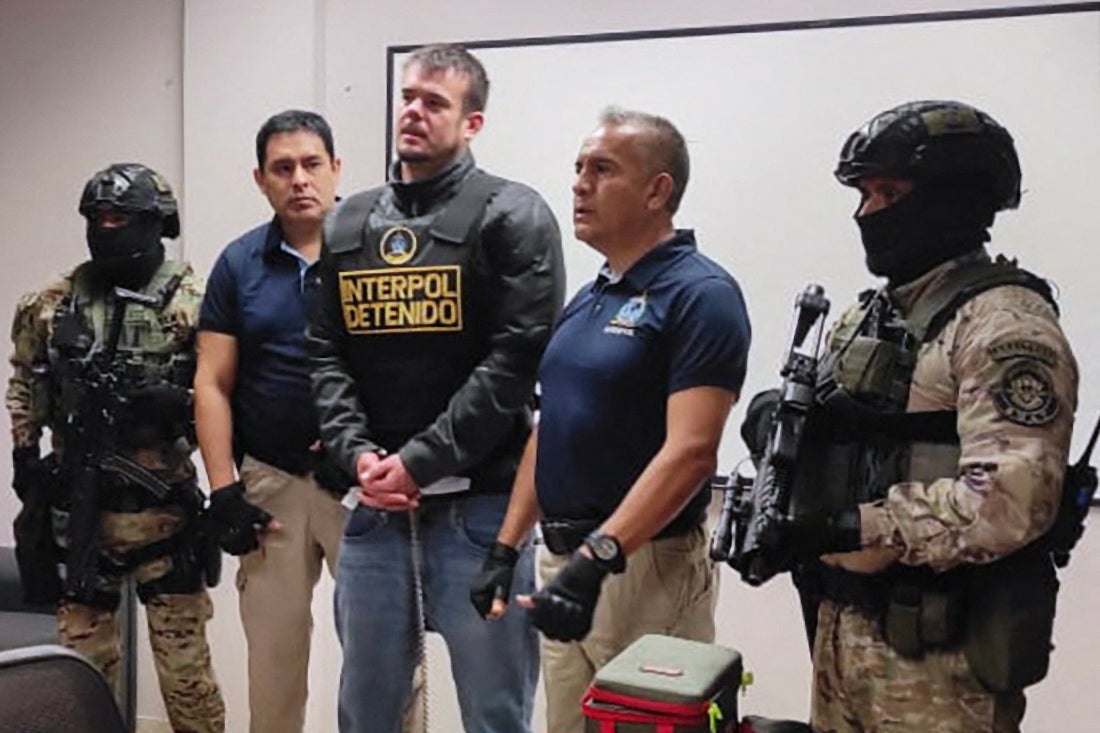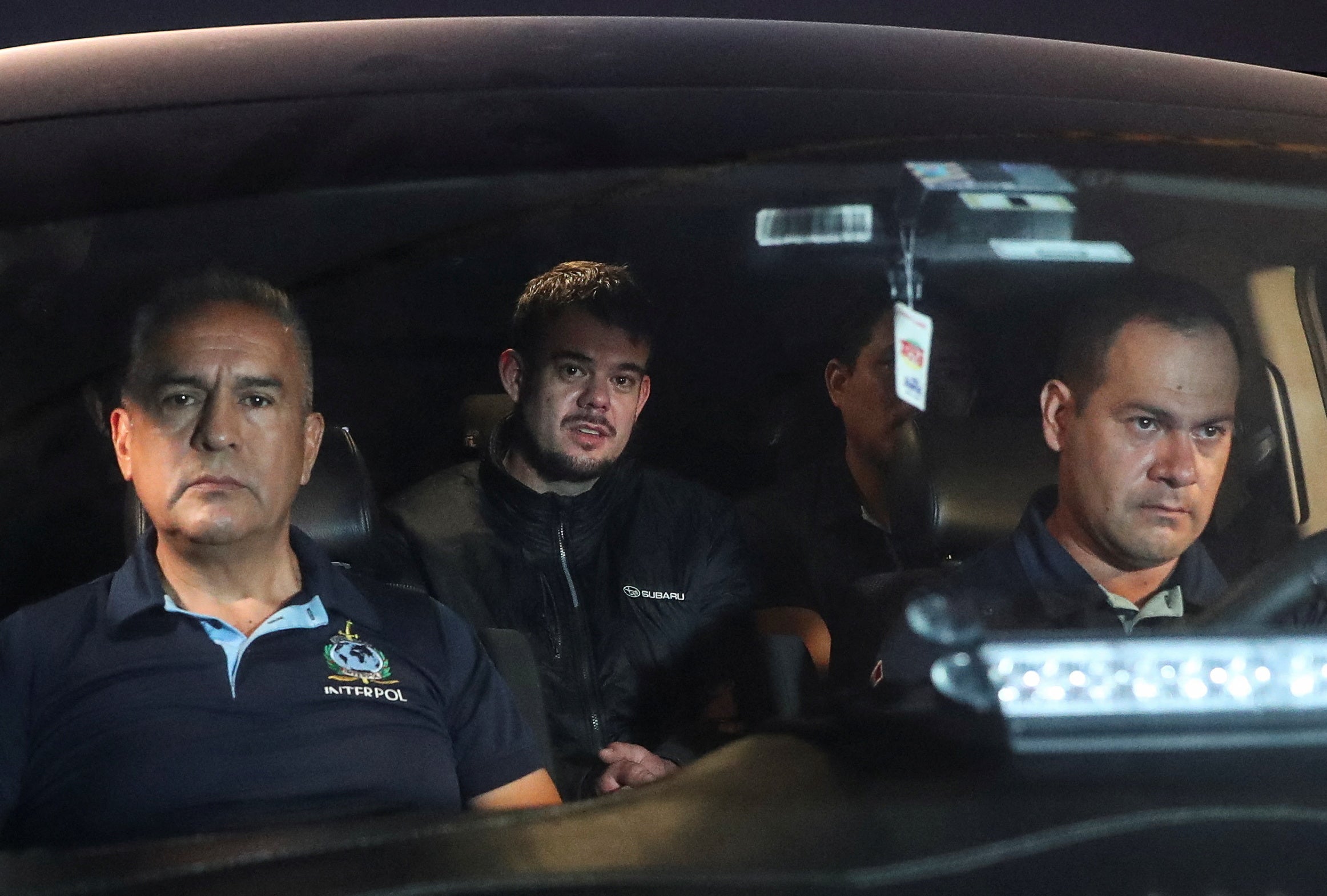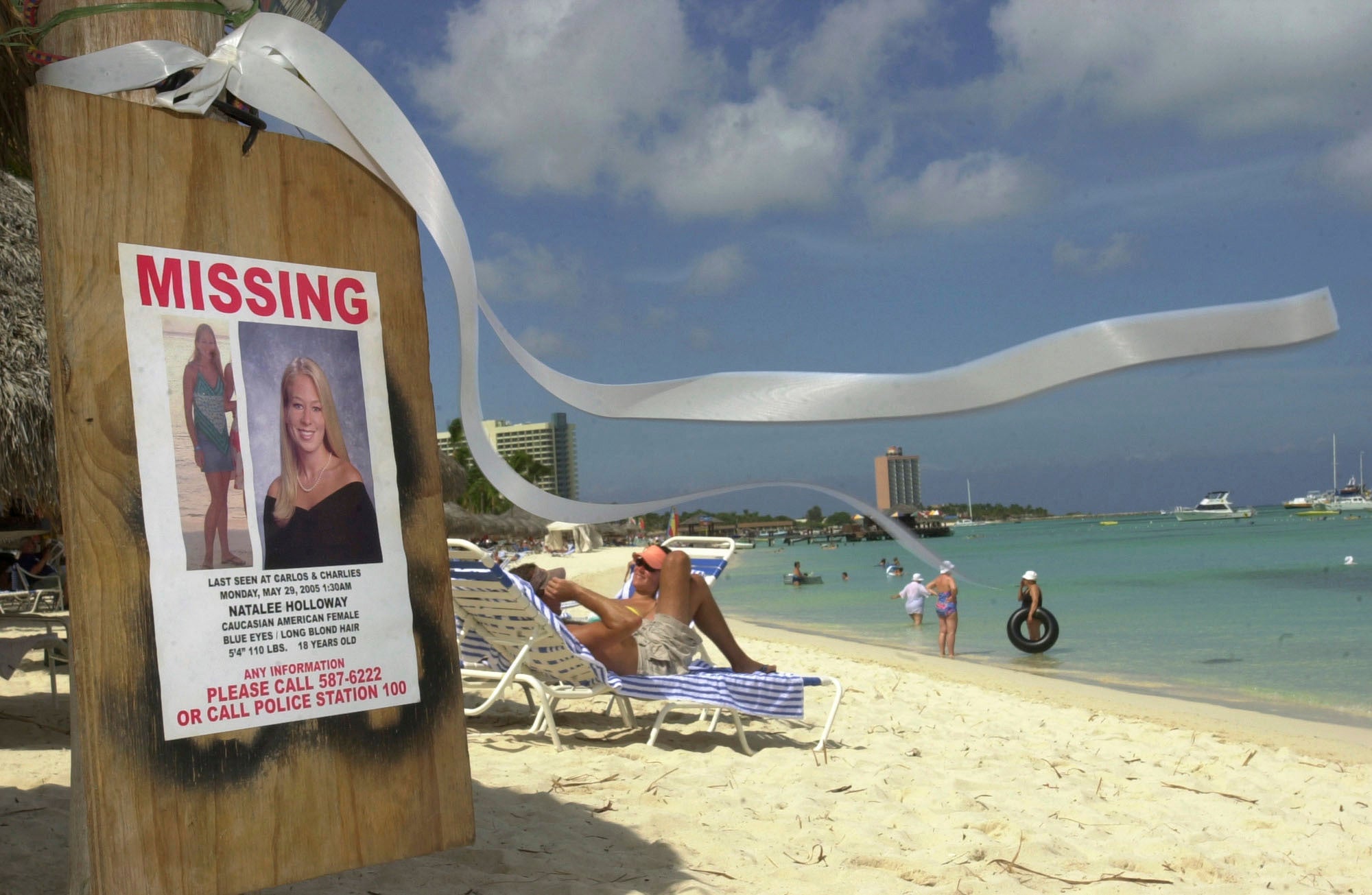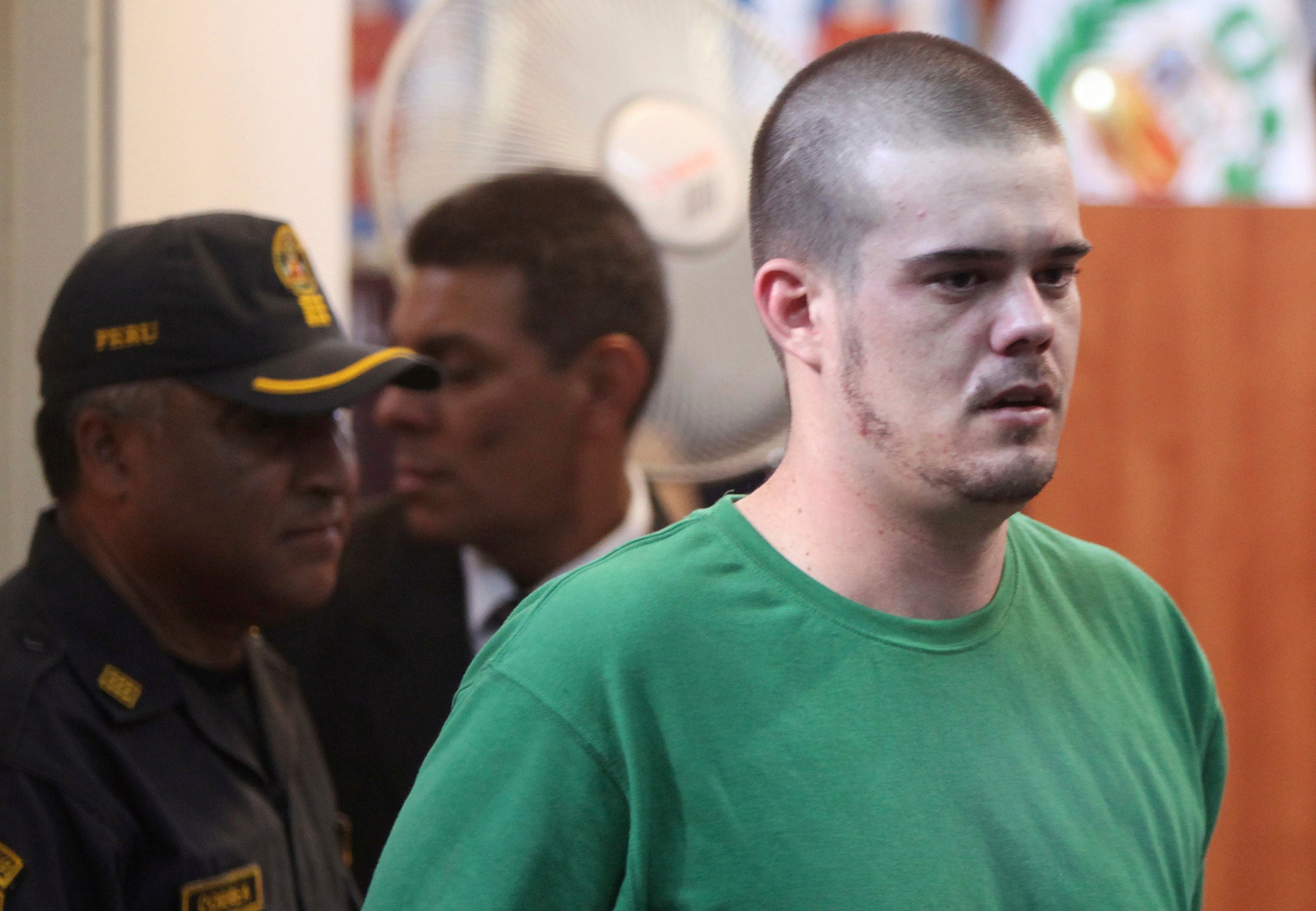Joran van der Sloot, chief suspect in Natalee Holloway disappearance, extradited to US
Holloway, who lived in suburban Birmingham, Alabama, was 18 when she vanished during a trip with classmates to Aruba in 2005
The main suspect in the disappearance of American student Natalee Holloway has departed Peru on an extradition flight to the US, where he will face charges over an alleged fraud scheme against her parents.
Holloway, who lived in suburban Birmingham, Alabama, was 18 years old when she vanished during a trip with classmates to Aruba in 2005. She was last seen leaving a bar with Dutch citizen Joran van der Sloot, then a 17-year-old student at an international school on the island.
Two weeks after Holloway vanished, van der Sloot was identified as a suspect and detained along with two of his friends. The trio gave ever-changing accounts of the moments leading up to Holloway’s disappearance but were eventually released after investigators failed to find Holloway’s body.
A judge later declared the teen dead and the investigation stalled for years. But in May, US prosecutors announced they had secured an extradition deal with Peru in connection with van der Sloot’s alleged money extortion of the Holloway family in 2010 for information about the location of their daughter’s remains.
Van der Sloot, who was facing a mountain of legal issues in his native Holland and then South Asia, moved to Peru five years after Holloway’s disappearance. In the South American country, he was convicted for the 2010 murder of a local woman and sentenced to serve 28 years in jail.
His extradition moved forward after a Peruvian judge on Tuesday confirmed the government’s decision to temporarily transfer custody to US authorities so van der Sloots could face charges of wire fraud and extortion in Alabama.
Footage from NBC showed the suspect wearing jeans and a black puffer jacket while handcuffed.
On Monday, the convicted killer’s attorneys filed a writ of habeas corpus challenging extradition efforts, which a judge then ruled against.


The time that van der Sloot ends up spending in the US “will be extended until the conclusion of the criminal proceedings,” including the appeal process should there be one, according to a resolution published in Peru’s federal register. He will then return to Peru to continue his sentence.
Peruvian authorities over the weekend moved van der Sloot from a maximum-security prison in the Andes to a detention facility in the capital, Lima, from which he was due to be taken to the airport sometime on Thursday. It is not immediately clear when he is expected to make his first court appearance in the US.

Holloway’s disappearance made international headlines and sparked a furore in the US. The teenager’s parents went to the island to pass out fliers and monitor searches, also appearing on national television shows to maintain pressure on investigators.
Van der Sloot initially claimed that he left Holloway drunk and sleeping on a beach, but has since made and retracted a series of claims, including that he got a friend to dump her dead or unconscious body in the sea and even that he sold the teenager into sex slavery.
He pleaded guilty in 2012 to murdering 21-year-old Stephany Flores, a business student from a prominent Peruvian family. Flores was killed on 30 May 2010, exactly five years to the day of Holloway’s disappearance.
Flores’ beaten body was found hours later in van der Sloot’s hotel room after he’d checked out without returning his key. Days after the discovery, prosecutors revealed that van der Sloot had allegedly solicited money on promises he would reveal the location of Holloway’s remains in Aruba.

Holloway’s mother Beth Holloway reportedly made a $25,000 down payment and arranged for an attorney to travel to Aruba, only for the information to prove to be false.
Van der Sloot was arrested in Chile and extradited back to Peru, later confessing he killed Flores in a fit of rage after she found out his connection to the Holloway case. Earlier this year, he was sentenced to an additional 18 years in prison for drug smuggling, according to the Telegraaf.
The maximum sentence for the charges he faces in Alabama is 20 years for extortion and 30 years for wire fraud.



